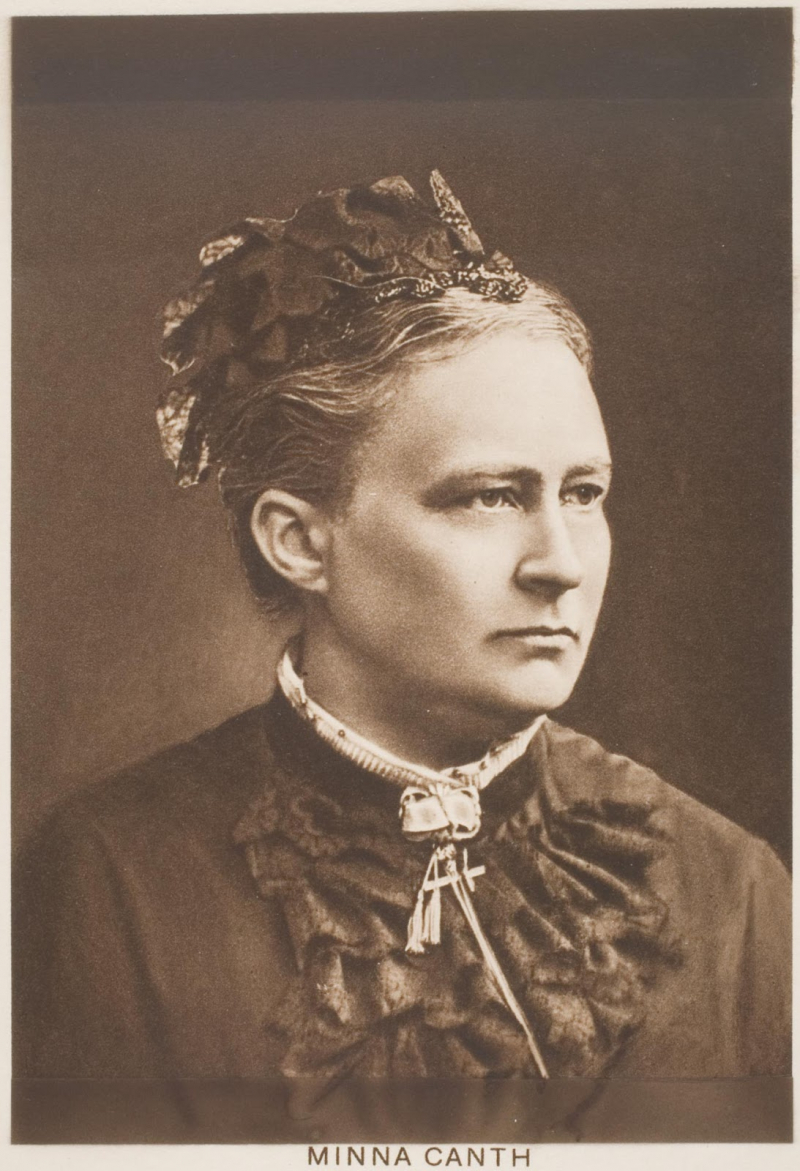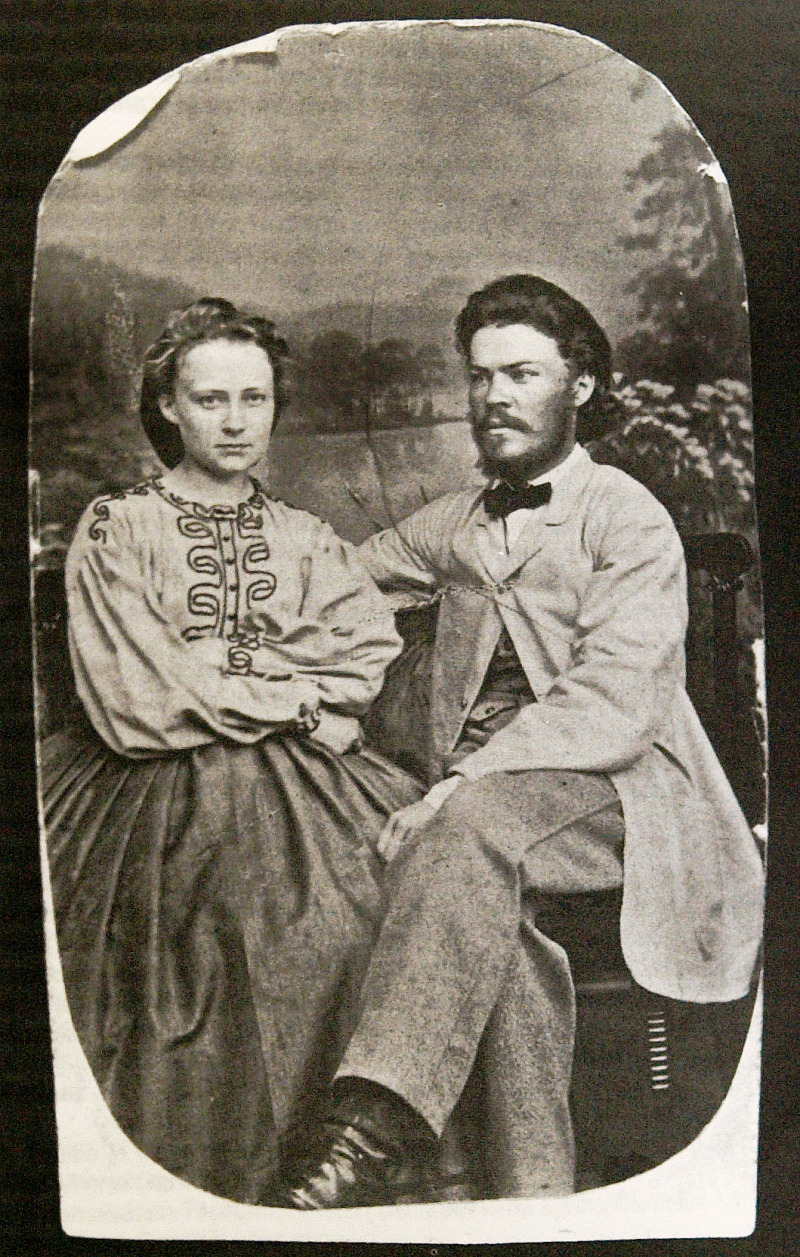Minna Canth
Minna Canth was a Finnish writer and social activist who was born Ulrika Wilhelmina Johnson on March 19, 1844, and died on May 12, 1897. Canth began writing while managing her family's drapery store and raising seven children as a widow. Her work addressed themes of women's rights, particularly in the context of a dominant culture she saw as hostile to allowing women's goals to be expressed and realized. Her best-known pieces are The Worker's Wife and The Pastor's Family, although Anna Liisa has been made into films and operas the most. She was a controversial person during her time, partly because of the asynchrony between her views and those of the moment, and partly due to her aggressive support for her point of view.
After Aleksis Kivi, Finland's national author and the first Finnish-language newspaperwoman, Minna Canth was the first prominent Finnish-language playwright and prose writer. She was also the first woman in Finland to have her own flag flying day, which began on March 19, 2007. It is also Social Equality Day in Finland.
In Finland, Canth is remembered for its numerous landmarks, publications, medals, commemorative coins, stamps, paintings, plays, exhibitions, and events. Many distinct building sites and locations, according to her, have been named. Canth is also called after a number of cultural clubs and communities. The Minna Canth Prize, which is granted yearly at the Helsinki Book Fair to a "shaker of our society," has been supported by the Finnish Fair Foundation. The winning award is 5,000 euros. Minna Canth monuments have been erected at Kuopio, Tampere, and Jyväskylä, with the Kuopio statue being unveiled on May 12, 1937.









